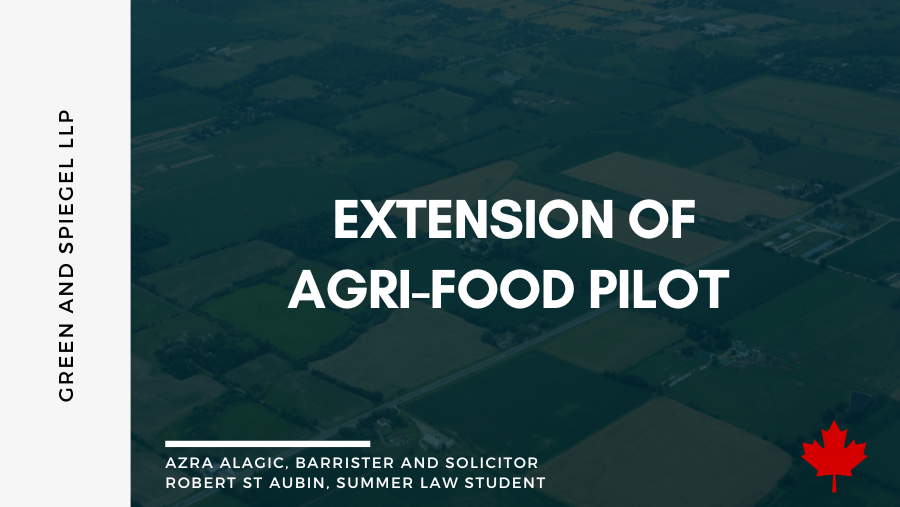
On May 8th, 2023, the Government of Canada announced the extension of its Agri-Food Pilot. The Government launched this pilot in May 2020 to help temporary foreign workers in the agricultural sector transition to permanent residence. The pilot was scheduled to end on May 14th, 2023. The pilot will now run until May 14th, 2025.
The Agri-Food Pilot aims to address labour shortages in Canadian agriculture by allowing temporary foreign workers in agricultural industries apply for permanent residence if they meet certain requirements. These include:
- Having at least one year of non-seasonal, full-time work over the past three years in eligible Canadian industries and occupations;
- Having a full-time, non-seasonal job offer in an eligible industry and occupation outside of Quebec; and
- Meeting the pilot’s language, educational and settlement fund requirements.
By allowing businesses to hire their experienced temporary foreign workers full-time, while also ensuring these workers have access to Permanent Residence, the Agri-Food Pilot strengthens Canada’s agricultural workforce.
The pilot’s extension is accompanied by other changes which the Government will introduce in stages. Importantly, this includes eliminating the caps which limit the number of applicants who can apply for each eligible occupation.
Other changes include allowing the family members of participants in the pilot to access open work permits and letting vulnerable workers use work experience gained under an open work permit to meet their one year of non-seasonal, full-time work.
These changes will make the pilot more accessible to applicants, while also helping applicants’ families settle in Canada.
The Agri-Food Pilot offers certain advantages not found with other Permanent Resident pathways. One important advantage is the absence of a point system. In contrast to the Express Entry programs, the Agri-Food Pilot does not base an applicant’s eligibility to apply on whether they have a certain number of points derived from their age, work experience, and other personal characteristics. Instead, an applicant can apply if they simply meet the pilot’s eligibility criteria.
The pilot also has a lower minimum language skill requirement than those needed for the Express Entry programs. While the pilot only requires a minimum Canadian Language Benchmark (CLB) of Level 4, the three Express Entry programs require a minimum CLB of Level 5—7, depending on the program and language skill.
And of course, the pilot focuses solely on agricultural industries and occupations. No other permanent residence pathway directly targets this sector.
The pilot also has additional conditions not found in the Express Entry programs. Only applicants with full-time, non-seasonal job offers in the pilot’s eligible occupations and industries can apply to the pilot. As well, the pilot solely bases an applicant’s previous one-year work experience on full-time work. In contrast, applicants under the Express Entry programs can meet their past work experience requirements with part-time work in certain circumstances.
The Agri-Food Pilot offers temporary foreign workers an opportunity to turn their temporary work into full-time employment, while at the same time strengthening Canada’s agricultural industries. The pilot’s extension ensures that these workers, their employers and Canada will benefit from this for at least another two years.
Contact us if you would like assistance with applying for the Agri-Food Pilot or any permanent resident pathway.





